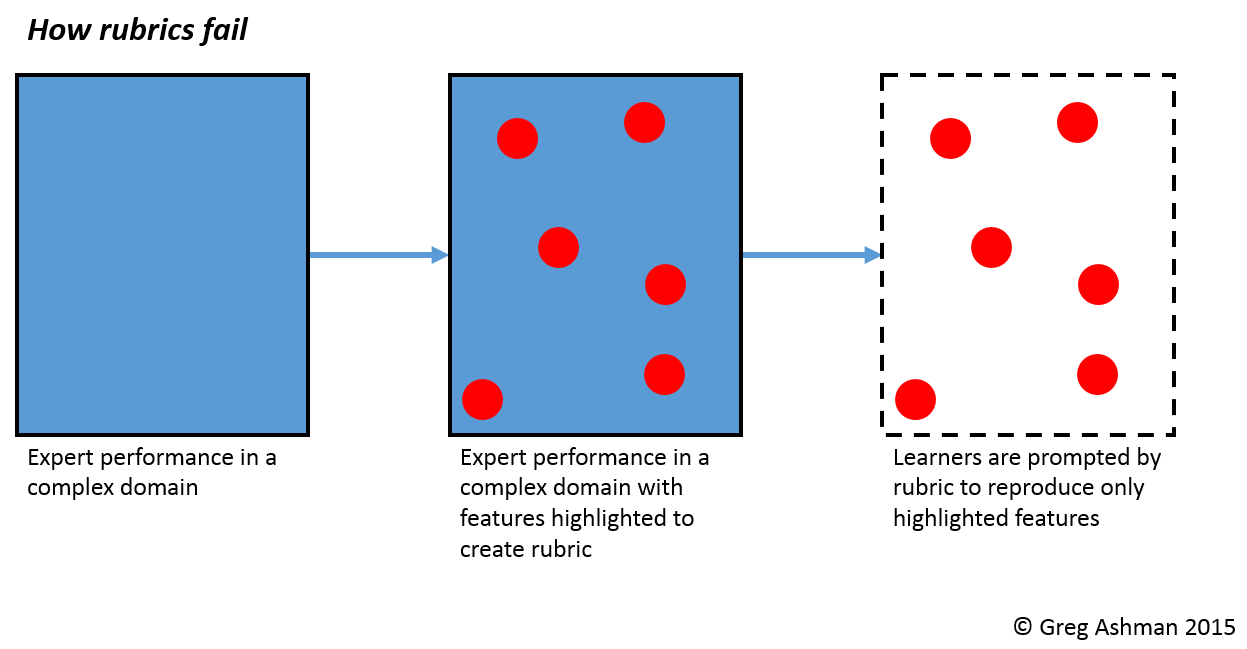Has Professor Jenny Gore proved that teacher training is great?
More from the wonderful world of Quality Teaching

I cannot reconcile myself to ‘Quality Teaching’ and its professional development wing, ‘Quality Teaching Rounds’. Obviously, I am in favour of high quality teaching. Who wouldn’t be? And it is the conflation between this idea and the name of the Quality Teaching Rounds programme that is a major part of the issue. This is a programme that is unusual in education. It has dancers, backing singers, a fancy light show and yet wafer thin evidence to demonstrate it improves educational outcomes.
For some reason that I don’t fully understand, Quality Teaching Rounds is huge in New South Wales. There is an academy centered on the University of Newcastle and Quality Teaching Rounds is heartily endorsed by the New South Wales government. As a new open access paper states:
“For almost two decades, the model has been endorsed by the NSW Department of Education as a model of teaching quality for government schools, signalling its enduring resonance with teachers and school leaders.” [References removed]
So, what is it?
Essentially, Quality Teaching Rounds centres on a rubric for scoring lesson observations. This originated in work in the U.S. and then landed in New South Wales via a project called ‘Productive Pedagogies’ in Queensland. We can get a feel for the rubric from an elaboration of one of the elements that has been posted in the appendix to the new paper.
The rubric element is ‘explicit quality criteria’ and demonstrates a strange obsession with developing success criteria for the work students produce — perhaps alongside the students — and then constantly going on about them.
To score 5/5 on this element, a teacher must demonstrate in a lesson that:
“Detailed criteria regarding the quality of work are made explicit or reinforced throughout the lesson and there is consistent evidence of students examining the quality of their work in relation to these criteria.”
This would be a redundant distraction in a mathematics or physics lesson and I believe it would waste a lot of time — you can make up your mind as to whether it represents ‘quality’ in your own subject. No, you really can, because, as far as I am aware, the Quality Teaching rubric is ultimately based on opinions about what makes a lesson effective and not empirical data.
The ‘explicit quality criteria’ rubric element is further elaborated upon with various notes and suggestions that seem to be drawn from constructivist teaching nonsense such as:
“Designating what students are required to do to complete a task does not by itself clarify what counts as high quality work. Merely outlining or providing a checklist of what students are supposed to complete is procedural.”
Boo! Procedural. Boo, hiss!
Moreover, the following is potentially really bad advice:
“Use the criteria to assess student work and to provide explicit, timely, understandable and actionable feedback during development, as well as on completion of the task. Avoid feedback on unspecified criteria because it can cause confusion, limit student achievement and reinforce inequalities.”
Among other issues, it reminds me of my 2015 diagram about why criteria of this kind fail:
By insisting on only using the pre-defined criteria, we are leading ourselves and our students into this trap.
So far, this post has been a preamble. To what? The new paper I refer to above, and a companion article in The Conversation by Professor Jenny Gore, use the made-up Quality Teaching rubric to apparently demonstrate that the teaching quality (note the conflation again) of new teachers is little different to that of experienced teachers and that, therefore, teacher training must be totally fine.
Researchers took a bunch of baseline observations of teachers that were part of a larger study and looked to see whether experience affected the score these teachers’ lessons obtain on the rubric. It did not.
If the rubric accurately measured effective teaching then this result would be convincing. However, there is little reason to suppose that it does.
In the meantime, the Quality Teaching tour bus rolls on. In the time since I first began drafting this post, I have received a breathless promotional email introducing me to my ‘QTR Advisers’ and claiming that, ‘Recent research shows participation in QTR improves student achievement.’ I don’t think the research demonstrates anything of the sort.
But, you know, if it’s called ‘Quality Teaching’ then in must represent quality teaching, right?





So all the top independent schools can relax and sack their expensive experienced teachers and replace them with newbies. No worries mate.
The state schools barely have experienced teachers. Even better!
I go to Newcastle Uni and I can attest what are getting is not quality teaching and I do not feel that I am trained well. I don't feel that I'm an effective teacher but I am getting HDs in most of my subjects. Initially I engaged a lot with the content they were giving us, and on my placement I tried to use what I'd learnt and well, it didn't work. I seemed so impossible to facilitate discovery learning etc. So, I blamed myself and the kids. I am now able to casual teach and a couple weeks ago I discovered the work of Anita Archer and have been watching her videos and trying to learn the EI method. Since then, I have done a lot more research and discovered so much incredible information. I finally feel like I'm learning to TEACH. Kids are learning from what I'm doing and it's so incredibly exciting and motivating! I feel like so many of my classmates are throwing out the baby with the bath water and deciding that all research about teaching is BS, or they're disillusioned with teaching and are blaming the schools, the kids, the parents and themselves. I think a lot of these challenges would be lessened is the university taught us how to teach.